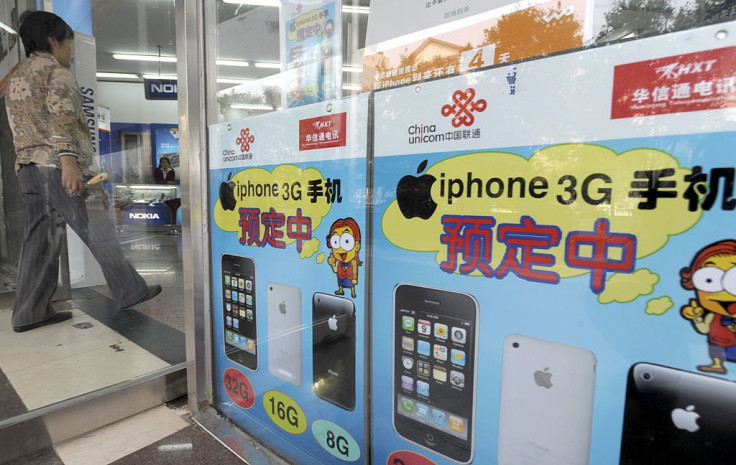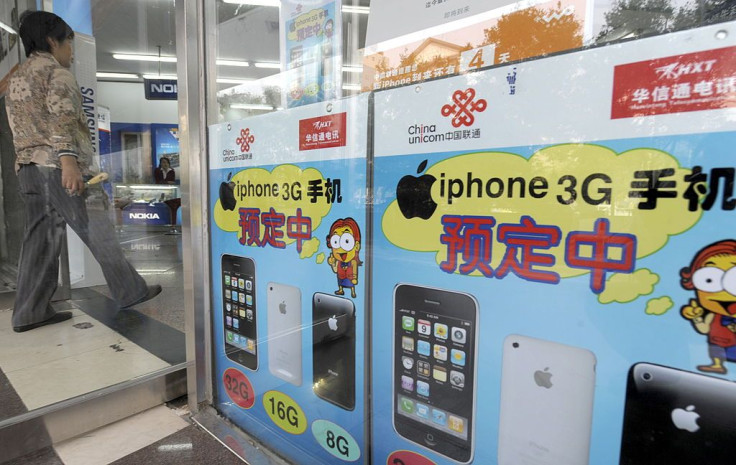Fake iPhone Scam: Chinese Students Scheme Apple Out Of $900,000 Using Counterfeit iPhones

Two Chinese students studying in Oregon cheated Apple Inc. out of close to $900,000 in an elaborate year-long scam involving a web of accomplices in China.
In a court complaint filed in March, the U.S. Department of Justice (DOJ) charged Chinese student Quan Jiang, who studied at Oregon State University, with wire fraud and trafficking in counterfeit goods. Another Chinese student, Yangyang Zhou, who studied at at Linn Benton Community College, was named as Jiang’s accomplice.
Jiang faces fines of up to $2 million and 10 years in prison for the trafficking accusation. He also faces a further 20 years in prison for wire fraud.
Jiang and Zhou were both engineering students in the U.S. on F-1 student visas at the time. They used 3,069 fake iPhones in the scam, which took place from April 2017 to March 2018, said prosecutors in the criminal complaint filed in Portland.
The DOJ said the case revolved around counterfeit Apple iPhones shipped to Jiang and Zhou from an unnamed associate in China. In the scam, Jiang and Zhou sent fake iPhones made in China to Apple for repair under the company’s warranty program.
Strangely enough, Apple sent the duo authentic iPhones as replacements for the fake ones. In total, the pair submitted thousands of warranty claims for counterfeit iPhones through the end of 2017, said the feds in two complaints which were filed on March 2018 and March 2019.
The DOJ said Jiang submitted over 2,000 warranty claims in 2017 alone. On the other hand, Apple’s records show over 3,000 claims in total made by Jiang. In every case, Jiang claimed the iPhones couldn’t be activated, which turned out to be the crux of the scam, said the DOJ.
“Submission of an iPhone that will not power on is critical to perpetuating iPhone warranty fraud, as the phone will not be able to be immediately examined or repaired by Apple technicians,” and Apple will often have to send a replacement iPhone under its warranty policy, said the feds in their complaint.
The feds noted Apple was able to determine that many of the counterfeit iPhones Jiang submitted were fake. Despite this knowledge, Apple still accepted 1,493 of the fake phones Jiang sent as authentic and provided him with replacement iPhones.
The remaining 1,576 fake iPhones were rejected for tampering and returned to the sender, along with a letter explaining why the warranty claim was denied. None was identified as counterfeit, according to the documents.

Apple did not immediately respond to requests for comments from U.S. media outlets.
Jiang told authorities that he regularly received packages with 20 to 30 iPhones from his associate in China with instructions to submit them to Apple under warranty claims. After receiving replacement iPhones, Jiang shipped them back to China, where they were sold at a hefty profit.
The associate paid a portion of the profits to Jiang’s mother in China, who deposited the money into a bank account Jiang could access from the U.S.
Jiang and Zhou didn’t use their real names in all the warranties, but had friends and family using pseudonyms and a large number of mailing addresses assist them.
© Copyright IBTimes 2024. All rights reserved.




















